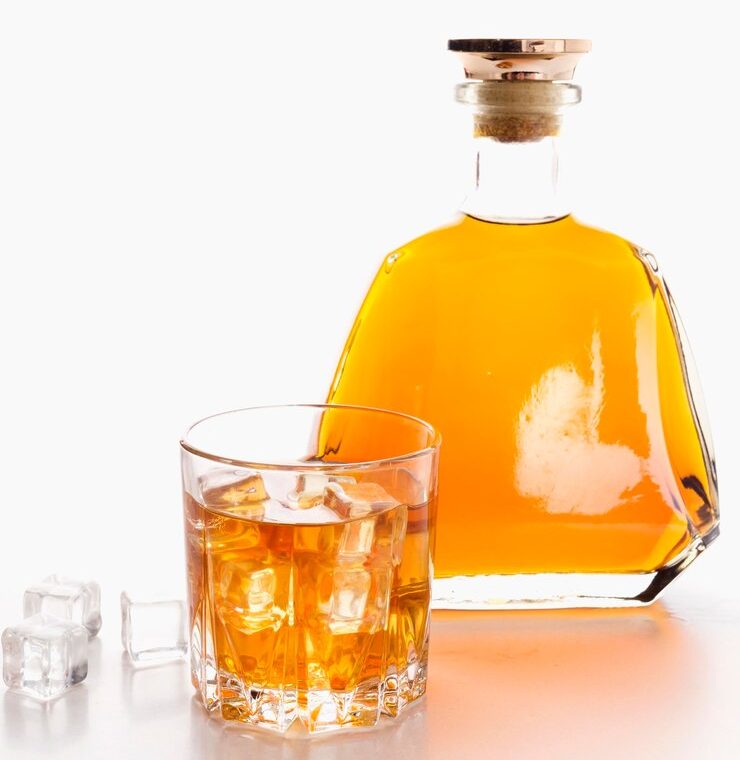Alcoholic beverages are often consumed in various social settings, but many people are unaware of their impact on oral and dental health. Alcohol not only affects the body as a whole but can also lead to several oral health issues, including tooth decay, gum disease, and bad breath. Excessive alcohol consumption can disrupt the mouth’s natural balance and increase the risk of various oral health disorders.
One of the main effects of alcohol on oral health is dry mouth (xerostomia). Alcohol has a dehydrating effect that can reduce saliva production—an essential factor in keeping the mouth moist and fighting bacteria. When saliva levels decrease, bacteria and acids in the mouth can grow more easily, increasing the risk of tooth decay and gum infections. Additionally, a dry oral environment can lead to unpleasant breath.
In addition to causing dry mouth, many alcoholic drinks—especially sweet or carbonated ones—contain high sugar content and are acidic in nature. This combination of sugar and acid can erode tooth enamel, making teeth more vulnerable to erosion and plaque buildup. Over time, this condition can cause increased tooth sensitivity and accelerate tooth damage. A study by Dr. drg. Archadian Nuryanti, M.Kes., and drg. Ivan Arie Wahyudi, M.Kes., Ph.D., showed that soaking teeth in alcoholic beverages such as beer and tuak significantly reduced enamel hardness, indicating potential long-term harm to dental health.
Furthermore, long-term alcohol consumption is associated with an increased risk of oral cancer. According to several studies, alcohol can damage the soft tissues in the mouth, increasing vulnerability to infections and abnormal cell growth. This risk is even greater among individuals who also smoke, as the combination of alcohol and tobacco can accelerate the development of cancerous cells in the mouth and throat. Additionally, research conducted by drg. Heni Susilowati, M.Kes., Ph.D., found that alcohol with a concentration of 14.7% can increase the adhesion of Candida albicans on nanofill composite resin, potentially worsening fungal infections in the oral cavity.
To minimize the negative impact of alcohol on oral and dental health, it is essential to maintain good oral hygiene by brushing teeth regularly, using appropriate mouthwash, and increasing water intake to maintain oral moisture. Limiting alcohol consumption or replacing it with healthier beverage options can also serve as an effective preventive measure. Regular consultations with a dentist are highly recommended to ensure optimal oral health.
Although alcohol is commonly consumed in daily life, its impact on oral and dental health should not be overlooked. Dry mouth, enamel erosion, tooth discoloration, and even the risk of oral cancer are some of the problems that may arise from uncontrolled alcohol consumption. Therefore, maintaining balance and prioritizing oral health is a wise step in avoiding the negative effects of alcoholic beverages. This also aligns with the Sustainable Development Goals (SDGs): Goal 3 on Good Health and Well-being, Goal 4 on Quality Education to raise public awareness, and Goal 12 on Responsible Consumption and Production to encourage the choice of healthier and more environmentally friendly drinks.
References
drg. Heni Susilowati, M.Kes., Ph.D., The Effect of Soaking in Alcoholic Beverage with 14.7% Concentration on the Adhesion of Candida Albicans to Nanofill Composite Resin In Vitro, https://etd.repository.ugm.ac.id/penelitian/detail/212336
Dr. drg. Archadian Nuryanti, M.Kes., drg. Ivan Arie Wahyudi, M.Kes., Ph.D., ., Effect of Soaking Duration and Type of Alcoholic Beverage (Beer and Tuak) on the Hardness of Human Tooth Enamel (In Vitro), https://jurnal.ugm.ac.id/mkgi/article/view/8539/6651
Author: Rizky B. Hendrawan | Photo: Freepik

